
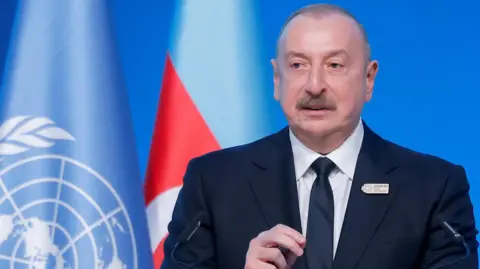 Reuters
Reuters
Azerbaijan's president said countries should not be blamed for having oil, gas and other natural resources or bringing them to the market.
The president of COP29’s host country told the UN climate conference on Tuesday that oil and gas were a “gift of god”.
Azerbaijan's President Ilham Aliyev criticised “Western fake news” about the country's emissions and said nations “should not be blamed" for having fossil fuel reserves.
The country plans to expand gas production by up to a third over the next decade.
Shortly afterwards, UN chief António Guterres told the conference that doubling down on the use of fossil fuels was "absurd".
He said the “clean energy revolution” had arrived and that no government could stop it.
Some observers had expressed concerns about the world’s largest climate conference taking place in Azerbaijan.
Its minister for ecology and natural resources - a former oil executive that spent 26 years at Azerbaijan’s state-owned oil and gas company Socar – is the conference's chairman.
There are also concerns that Azerbaijani officials are using COP29 to boost investment in the country’s national oil and gas company.
But addressing the conference on its second day, President Aliyev said Azerbaijan had been subject to "slander and blackmail" ahead of COP29.
He said it had been as if “Western fake news media”, charities and politicians were “competing in spreading disinformation...about our country”.
Aliyev said the country’s share in global gas emissions was “only 0.1%”.
"Oil, gas, wind, sun, gold, silver, copper, all...are natural resources and countries should not be blamed for having them, and should not be blamed for bringing these resources to the market, because the market needs them."
Oil and gas are a major cause of climate change because they release planet-warming greenhouse gases like carbon dioxide when burned for energy.

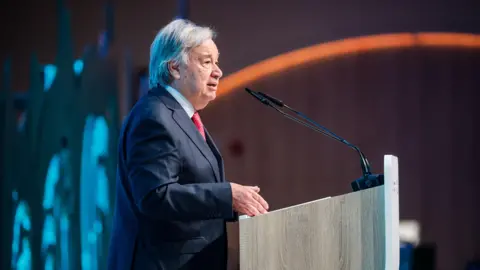 EPA-EFE/REX/Shutterstock
EPA-EFE/REX/Shutterstock
UN Secretary-General Antonio Guterres decried “doubling down on fossil fuels”
The US is also under the spotlight at the conference, following the election victory of Donald Trump - a known climate sceptic.
On Monday, US President Joe Biden's envoy John Podesta called out president-elect Trump's view that climate change was a hoax and said the US team would continue to work on the deal passed at COP28 in 2023.
He added that Washington was also working on a deal passed last year in Dubai to triple renewable power by 2030.
Addressing the conference in Baku on Tuesday, UN Secretary General Guterres decried “doubling down on fossil fuels”.
"The sound you hear is the ticking clock," he said.
"We are in the final countdown to limit global temperature rise to 1.5 degrees Celsius and time is not on our side."
He called 2024 a “masterclass in climate destruction” with disasters being “supercharged by human-made climate change”.
The UN's World Meteorological Organization previously said that 2024 is on track to be the world's warmest year on record.
Guterres said “a new finance goal” was needed, with wealthiest countries paying the most.
“They are the largest emitters, with the greatest capacities and responsibilities," he said. "Developing countries must not leave Baku empty-handed."
The Azerbaijani president's comments are unlikely to derail talks behind the scenes, which are largely about getting more cash for poorer countries to help implement their climate plans.
Developing nations are calling for richer countries to agree together on a fund that could add up to $1 trillion, using public and private money.
Leaders of most of the world's biggest polluters were not present in Baku, including Biden, France’s leader Emmanuel Macron and India’s Narendra Modi.
The environment minister for Burkino Faso, a central African country among the poorest in the world, told the BBC that more cash was essential.
Roger Baro said it would help his nation deal with the current impacts of climate change in the country, which is experiencing widespread drought, flash floods and disease outbreaks.
The disasters occurred in the Sahel region, which saw temperatures of 45C this year in a heatwave that scientists said would have been impossible to reach without climate change.
Among other world leaders to take to the stage on Tuesday was Spain's prime minister, who called for "drastic measures" after floods killed more than 200 people in the country.
Experts say that climate change contributed to the heavy rainfall that caused the floods.
"We need to undergo decarbonisation, adapt our towns and infrastructure," said Prime Minister Pedro Sanchez.
COP29 is scheduled to last until 22 November, but there are already fears that the tricky issues on the table could make a final agreement very difficult.

 1 month ago
6
1 month ago
6

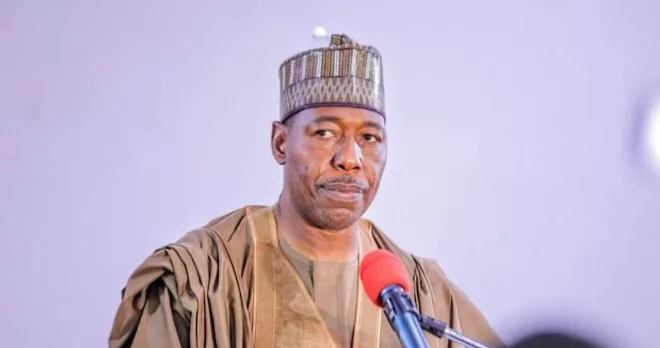





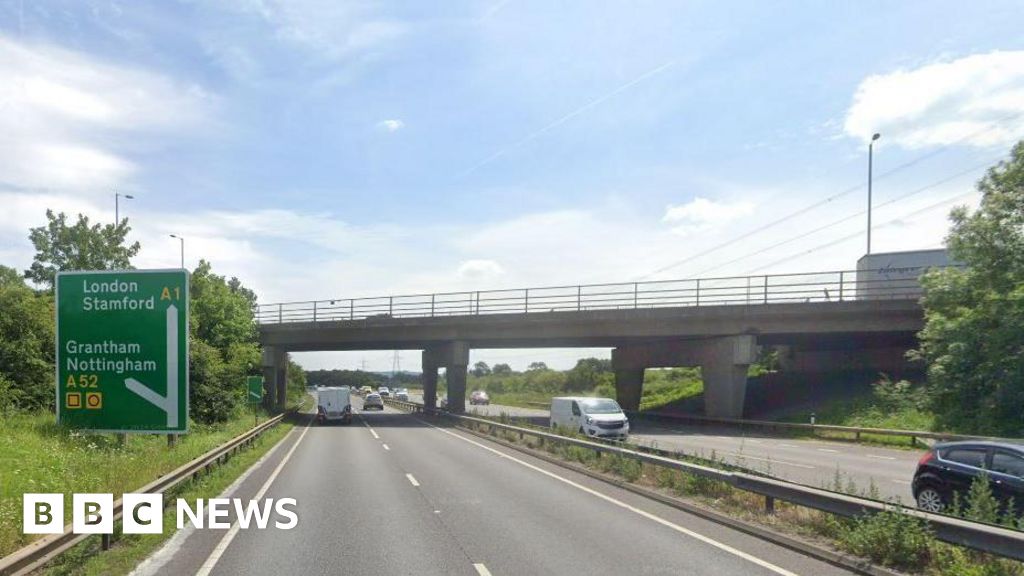






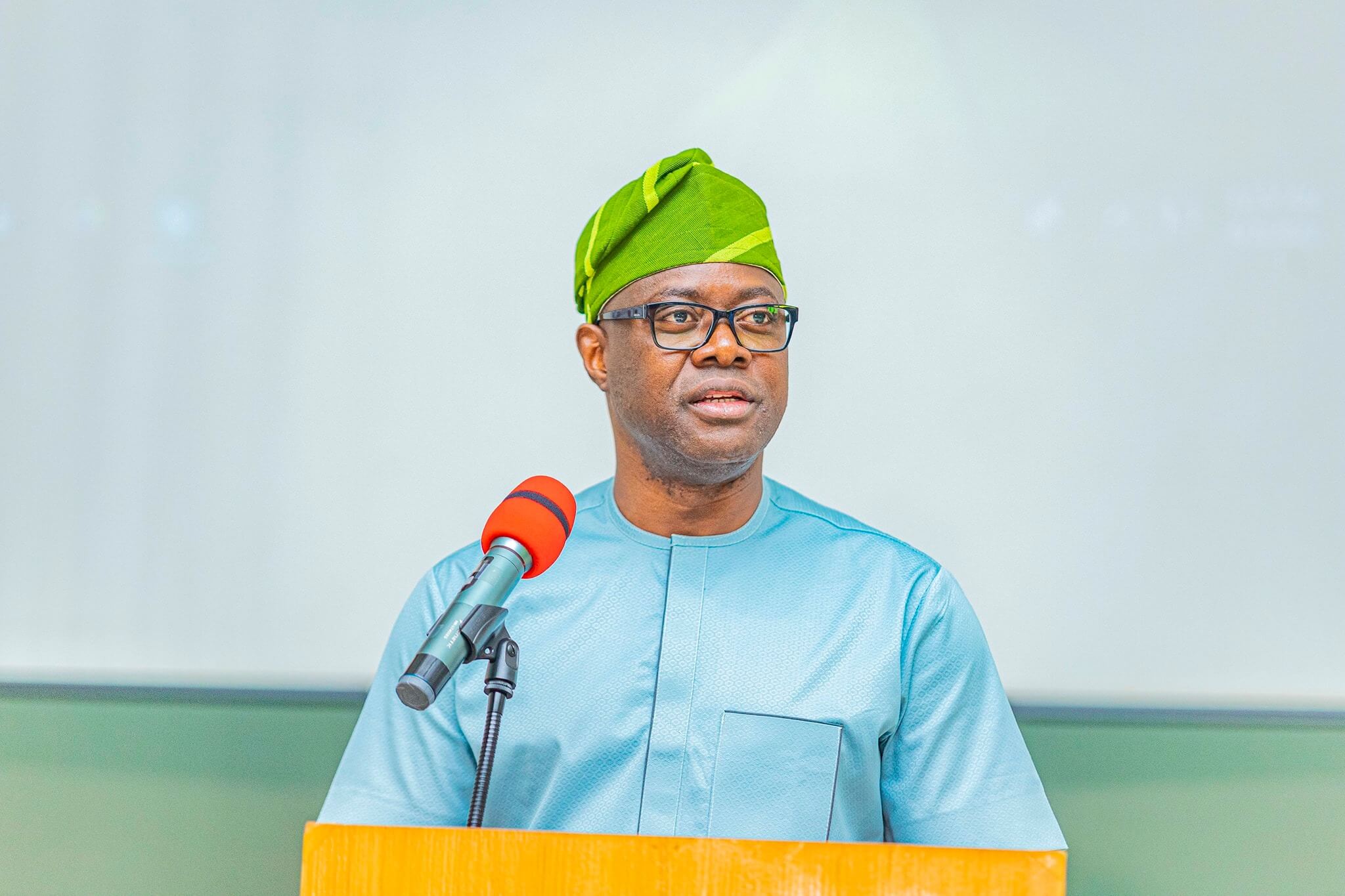
 English (US) ·
English (US) ·